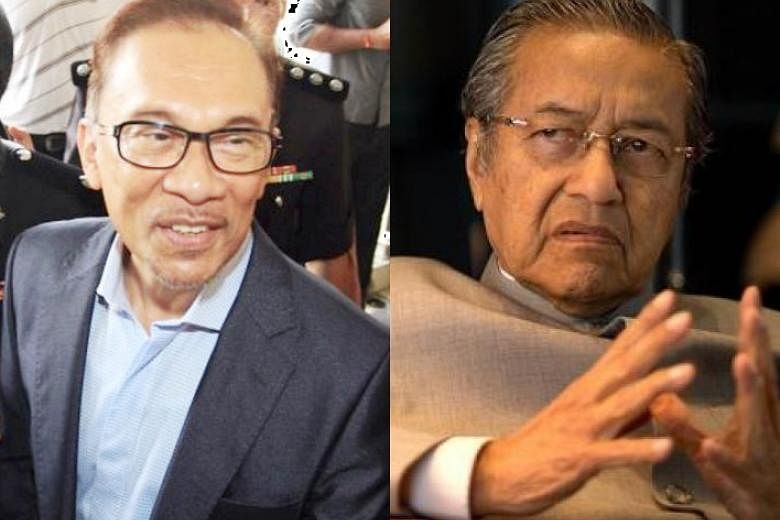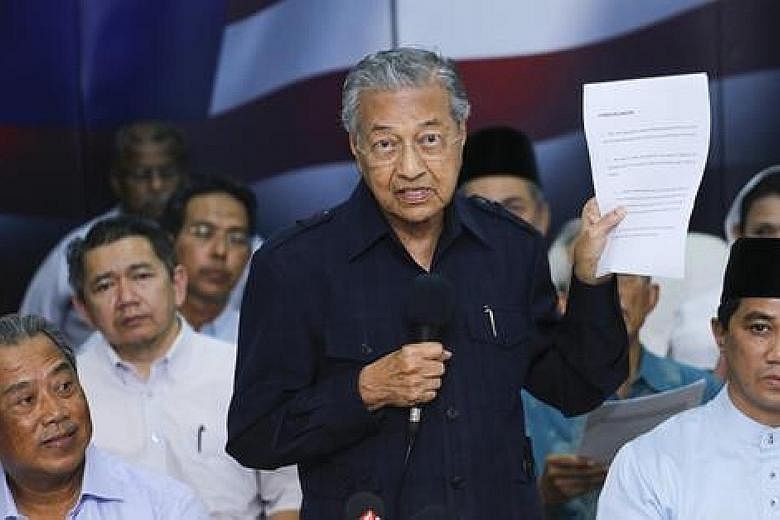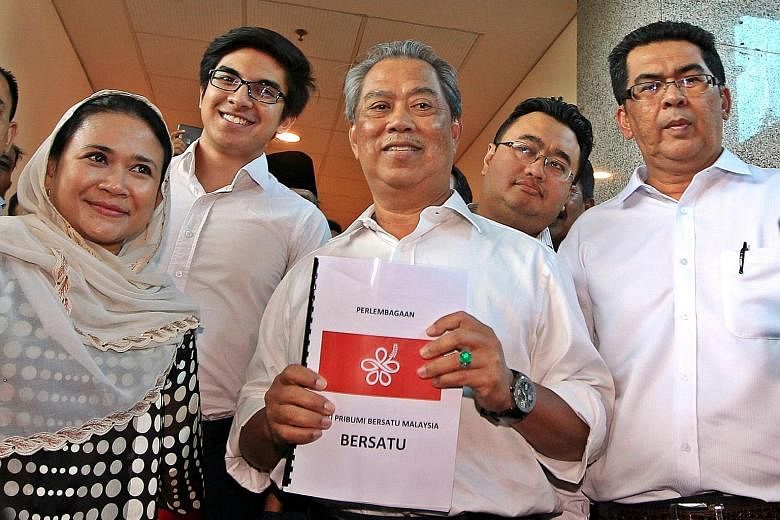Malaysia's troubled opposition alliance could be in for more strife.
A surprise decision by jailed politician Anwar Ibrahim to withdraw as the Pakatan Harapan (PH) alliance's de facto candidate for the premiership has jolted the top leadership, which is facing a separate internal crisis over a plan by Tun Dr Mahathir Mohamad to push for a central role in the opposition.
In a statement released from prison to explain his decision late last Saturday, Anwar noted that the "friction (over who will be prime minister) is exhausting (the opposition), as the final decision lies with the people in the general election".
Several alliance leaders were caught off guard by Anwar's move.
Penang Chief Minister Lim Guan Eng, secretary-general of the Democratic Action Party (DAP), a member of the PH, told reporters he had not been consulted and that, as far as the DAP was concerned, Anwar would remain the favoured candidate for prime minister.
"We were left in the dark. In any case, our position remains that he (Anwar) is our candidate," Mr Lim said yesterday.
The secretary-general of Anwar's Parti Keadilan Rakyat (PKR), Datuk Saifuddin Nasution, pointed out that the statement was primarily aimed at signalling Anwar's opposition to Dr Mahathir's bid to lead PH.
"(Anwar) does not want the issue of who becomes PM or who should take a lead role to be the focus. He favours the old structure (in the opposition) where everyone is equal," he told The Straits Times.
In recent weeks, Dr Mahathir has been lobbying top opposition leaders to accept a plan to install his fledgling ethnic Malay-based Parti Pribumi Bersatu Malaysia (PPBM) as the dominant force in PH and to make him and his deputy Muhyiddin Yassin its top two leaders.
Dr Mahathir's political strategy revolves around his belief that power in Malaysia is shaped by race-based politics and that the key lies in support from the Malay community, which accounts for more than 60 per cent of Malaysia's population.
While the opposition has made significant inroads among urban voters, the bulk of the country's rural Malays has traditionally supported Prime Minister Najib Razak's Barisan Nasional (BN) coalition government, led by Umno.
In private meetings with opposition leaders, Dr Mahathir, 91, has argued forcefully that, in order to break Umno's stranglehold on the rural Malay vote, the opposition alliance has to be recalibrated - its component parties must rally behind an ethnic Malay-based party and top leadership from the Malay community.
If his PPBM takes the lead role and he becomes the top opposition leader, Dr Mahathir believes, the alliance will be able to present itself to the country's Malay community as an alternative to the Umno-led BN.
The problem for Anwar is that Dr Mahathir's plan is finding support among some sections of the opposition, which raises the spectre of splits in the four-party alliance. The fourth member is Parti Amanah Negara, which broke away from Parti Islam SeMalaysia (PAS).
Several PKR and DAP leaders privately noted that Dr Mahathir's plan could help to re-energise the opposition, which is still smarting from the recent pullout of PAS from the alliance.
"What would change the election outcome is the breaking of Umno's stranglehold on the rural Malay vote. Mahathir and his party have the capacity (to do it) but whether it happens is another question," said a senior PKR leader, who also believes Dr Mahathir's strategy could help combat voter fatigue.
The opposition posted its best performance in the May 2013 election, winning nearly 52 per cent of the popular vote. However, it secured control of only 89 constituencies out of the 222 parliamentary seats contested.
Opposition leaders who view the Mahathir strategy positively believe that the electoral system is stacked against the alliance unless it can break Umno's stranglehold on the rural Malay vote.
While they acknowledge that giving Dr Mahathir a lead role could cost the opposition votes from non-Malay communities, they would also like to believe that a swing in Malay votes in favour of the opposition would deliver victories in parliamentary seats that they had narrowly lost in 2013.
"We need to use him as much as he wants to use us," said the senior PKR member who is supportive of Dr Mahathir's plan.



